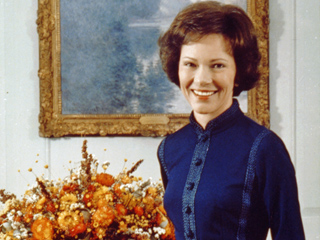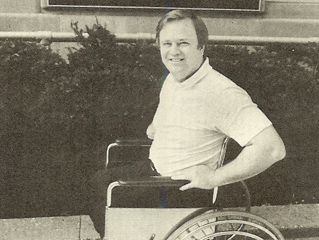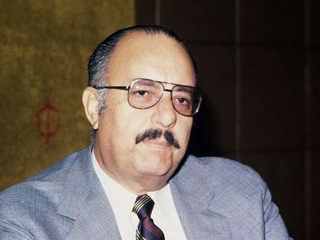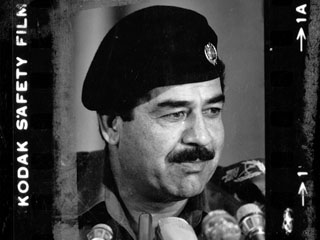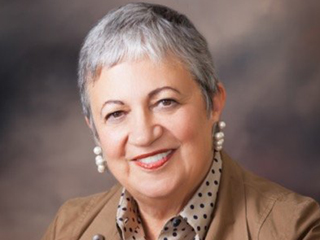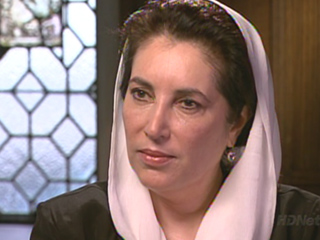Throughout his career, Dan Rather has interviewed some of the most influential domestic and international civic and political leaders. These have included ambassadors and National Security Advisor, presidential aides and press secretaries, as well as Nobel Prize winners. a criminologist and a former CIA director. Rather also talked to Soviet dissenters and religious personalities, India's Prime Minister, as well as Nigerian, Mexican, Bolivian, and Colombian presidents and interviewed Cuban president Fidel Castro numerous times.
See Political and Civic Leaders Interviews Additional Materials
Andrew Young
In January 1977, Rather interviewed Andrew Young, the civil rights activist and U.S. congressman from Atlanta who had recently been appointed U.S. Ambassador to the United Nations by President Carter. He was the youngest UN ambassador in U.S. history, the first minister, and the first African American. One section of his interview drew a lot of attention. Asked by Rather if he thought the presence of Cuban troops in Angola assured a protracted guerilla war, Young responded "No, it's not assured. In fact, there's a sense in which the Cubans bring a certain stability and order." Young then clarified that, for many people around the world, racism was a much more serious threat to their well-being than communism. Despite heavy criticism, Carter entrusted Young to travel to Africa where he visited fifteen countries and met with seventeen heads of state.
A controversy about Young's meetings with member of the Palestine Liberation Organization in 1979 led to his resignation as an ambassador. Young, who had been a congressman from 1973–1977, later served as mayor of Atlanta from 1982–1990 and ran an unsuccessful campaign to become governor of Georgia in 1990. He has since founded or served in a large number of organizations focusing on public policy, political lobbying, and international relations, with a special focus on Africa.
Materials
Rosalynn Carter
Rather talked to Rosalynn Carter in April 1977 for the new CBS interview show Who's Who. The interview focused on the active role the First Lady was taking on issues such as the elderly and drug addition. As the chairwoman of the new Mental Health Commission, she was particularly vocal about this topic. She later helped pass the Mental Health System Act of 1980. Mrs. Carter talked about her image as a "Steel Magnolia," her influence on her husband, and how she planned on using the fact that she speaks Spanish to travel to South America, where she later acted as an envoy for her husband. Dan Rather sat with the president and Mrs. Carter a few months later for a one-hour special 60 Minutes, right before the Democratic National Convention in August 1980.
After leaving the White House, Mrs. Carter and her husband led a very active life, founding the Carter Center in 1982. In addition to issues of peace, sexual inequality, and childhood immunizations, she continued to advocate on behalf of mental illness, becoming the president of the board of directors for the Rosalynn Carter Institute for Caregiving (RCI) at Georgia Southwestern State University.
Materials
Max Cleland
A recipient of the Silver Star and the Bronze Star for valorous actions in combat during the Vietnam War, Joseph Maxwell "Max" Cleland was appointed Administrator of Veterans Affairs by his fellow Georgian Jimmy Carter. The thirty-five-year-old was the first Vietnam veteran appointed to that job. A triple amputee, Cleland had experienced first hand the frustration of being treated like a claim number, without enough help or encouragement. In the following four years, he tried hard to reform the bureaucratic monster that was, and still is, the VA office. Cleland then served as secretary of state of Georgia from 1983 to 1996 and as U.S. senator from 1997 to 2003.
Always interested in giving a voice to soldiers, active duty ones or veterans, Rather did numerous stories documenting their experiences. In 2006, for example, "Coming Home," the first hour of his new investigative show Dan Rather Reports featured, among others, Tammy Duckworth, who worked for the Department of Veterans Affairs.
Materials
Jesse Jackson
In December 1977, 60 Minutes profiled civil rights activist Baptist minister the Reverend Jesse Jackson and his organization Operation PUSH (People United to Serve Humanity), which advocated black self-help and focused on economic, social, and political development of blacks in Chicago and across the nation. It negotiated, for example, with businesses across the nation to increase fair employment practices in hiring, promotions, franchising, and sub-contracting opportunities for all Americans.The 60 Minutes piece followed Jackson as he talked about involving parents in their children’s school progress, about teachers having low expectations that led to low development, and about helping young people achieve upward mobility by succeeding in school and preparing for a competitive labor market.
Despite difficulties throughout the decades, Organization PUSH has been one of the most important social justice organizations in the United States since 1971. In 1996, it merged with the National Rainbow Coalition, a political organization that grew out of Jesse Jackson's 1984 presidential campaign. The focus of the Rainbow/PUSH Coalition remains on the political and economic empowerment of minorities and women. Rather interviewed the reverends Jesse Jackson and Billy Graham in 1979 in the wake of Andrew Young's resignation and a renewed fear of anti-Semitism. Jackson explained his willingness to meet with Yasser Arafat was a pro-peace move, an indication that blacks want to speak and be involved in international issues.
Materials
Ed Koch
In April 1978, Rather interviewed the recently elected mayor of New York as he inherited a city on the edge of bankruptcy with a $1 billion debt and upcoming negotiations with unions. A democrat, Edward Irving Koch had run on a pretty conservative get-tough platform, and he delivered. He stood up to the unions, cut spending, slashed the payroll, and brought the city back to fiscal solvency. He also seeded programs to rebuild neighborhoods destroyed by years of neglect and arson. Rather and Koch talked about his love for the city, questions about his bachelorhood and his Jewish heritage, as well as critiques about his “brash” and “ebullient” personality.
Only one of four people to have ever been elected mayor of the city of New York three times, including Fiorello LaGuardia, Robert Wagner, and Michael Bloomberg, Koch was a beloved mayor with his famous trademark phrase “Hi. How’m I doin?” and his clever quips and zany humor. He lost his bid for governor to Mario Cuomo in 1982 and was reelected in 1985 for a third mayoral term, which was swamped by corruption scandals. Koch was defeated in a fourth bid as mayor but never stopped advocating for his city.
Materials
Anastasio Somoza and Edén Pastora
In the fall of 1978, Rather reported from Nicaragua, a country torn by a civil war that pitted the president and commander-in-chief Anastasio Somoza Debayle, who was backed by the Americans and other military regimes such as El Salvador and Guatemala, against the Sandinista National Liberation Front (FSLN) or Sandinista movement, a guerilla group aided by Cuba, Venezuela, and Costa Rica but also by many conservatives unhappy with the state of the economy under Somoza. Civilians bore the brunt of the conflict, and reports about civil right abuses abounded.
In addition to talking to regular Nicaraguans, the 60 Minutes crew secured an interview with President Somoza Debayle, who contested problems with human rights but acquiesced when told he was the richest man in Nicaragua. He defended that his main priority, and achievement, was to protect the country from communism. Rather also talked to the current military Sandinista leader, Eden Pastora, known as Commante Cero, who in August 1978 had stormed the parliament and took MPs as hostages. He achieved the release of fifty-nine political prisoners and flew to exile in Panama with a reputed ransom of $500,000.
The Sandinistas eventually gained power in July 1979. Taking much of Nicaragua’s national treasure with him, Somoza fled in exile to Paraguay, where he was assassinated in 1980. Pastora first joined the new government, the Junta of National Reconstruction, but eventually resigned, disillusioned by its own repressiveness. Nicaragua experienced another decade of violence when counterrevolutionary forces backed by the United States (the Contras) sought to overthrown the left-wing Sandinista government.
Materials
Roger Baldwin
Roger Baldwin, one of the founders of the American Civil Liberties Union in 1920, sat for an interview with Dan Rather in 1979. The ninety-five-year-old looked back at the many controversial cases the ACLU took on under his leadership: the 1925 Tennessee “Monkey Trial” with John Scopes; the Sacco and Vanzetti murder trials; the free-press rights of Jehovah’s Witnesses; James Joyce’s ban on his novel Ulysses; Henry Ford’s right to distribute antiunion pamphlets; the Miranda case about police misconduct during interrogations; and the defense of the New York Times in its request to publish the Pentagon Papers. ACLU defended persons of all persuasions, from homosexuals, prisoners, and the poor, to radicals on the far left and far right.
Rather and Baldwin talked about Baldwin’s work and the Sermon on the Mount doctrine at its core, as well as about the genesis of the Scopes trial. Rather asked him about his own political views and his trouble with Joseph McCarthy—once a supporter of Soviet communism, Baldwin changed his thinking and even banned Communist sympathizers from the ACLU board. True to the principles of the ACLU, Baldwin fought for free speech for both Ku Klux Klansmen and Communists, leading to tensions within the organization.
Materials
Robert Mugabe and Joshua Nkomo
The 60 Minutes team traveled to Rhodesia in 1979 on the eve an election that would determine the future of the region and the country, after years of a guerilla war with increasing brutality on all sides. On the opposition were two African nationalist organizations, both supported by socialist countries such as the Soviet Union, Cuba, and China, as well as by international business groups: Joshua Nkomo in Zambia with the Zimbabwe African People's Union, ZAPU, and Robert Mugabe with ZANU, the Zimbabwe African National Union, which operated from Mozambique. Both insisted in the interview with Dan Rather that they were not fighting a race war, but a Zimbabwean war against racialism
Under pressure of the South African and the United States government, Rhodesia’s white leader Ian Smith accepted the principle of black majority rule and scheduled elections for April 1979. Abel Muzorewa from the United African National Council became the country's first black prime minister on June 1, 1979, and the country’s name was changed to Zimbabwe. Trouble continued as both ZANU and ZAPU had refused to participate in what they considered fraudulent elections. The Lancaster House Agreement set up another election in 1980, which ZANU won. Robert Mugabe became prime minister and has been president since 1987. While he originally succeeded in avoiding a mass exodus of the white community in the 1980s, Mugabe is regarded as an authoritarian ruler responsible for human rights violation. Before the first free elections in South Africa in 1994, Rather traveled back to Zimbabwe to talk to Mugabe, who had some reassuring advice for white South Africans nervous about the upcoming elections.
Materials
Nelson Mandela and F. W. De Klerk
The release in 1990 of Nelson Mandela after twenty-seven years in captivity was extensively covered by American television. All three major anchors (Tom Brokaw, Peter Jennings, and Dan Rather) traveled to South Africa, as did Bernard Shaw of CNN and Ted Koppel from Nightline, who received a lot of praise for his coverage. Koppel, who had done a series about the country in 1985, got an exclusive interview with President de Klerk and later organized a town meeting at the University of Witwatersrand in Johannesburg with representatives of the South African races and political parties. As Broadcasting reported, there was no "first" interview: "Mandela's 'hospitality committee' arranged for a series of 10-minute interviews . . . for each of the U.S networks and a number of foreign news organizations," in the backyard of Mandela's old home in Soweto. Talking to Rather on February 14, 1990, Mandela commented on tribal warfare and recalled his internment. He praised wife Winnie and said he always had hopes of freedom.
Rather would later interview Nelson Mandela and President F. W. de Klerk on the eve of the first free election in South Africa in 1994. He did a piece on the experience of the neighboring country Zimbabwe and talked to President Mugabe about its transition from apartheid. Producer Tom Bettag recalls the competition among the journalists to get an interview with the African National Congress leader, and he remembers very vividly the lasting impression Mandela left on everyone around him. In December 2013, on the day the South African leader died, Rather talked with Rachel Maddow about covering Mandela's release from prison in 1990, the elections in 1994, and the times he interviewed him.
Materials
Saddam Hussein
Twice in his career, Dan Rather was the first American journalist to land a major interview with the Iraqi leader. As the first Gulf War unfolded in 1990, he stayed about six weeks with a CBS crew and producer Tom Bettag in Jordan, where they did broadcasts from Saudi Arabia and most of the Gulf States. Three weeks after Saddam Hussein had invaded Kuwait, Rather was picked up from his hotel in Baghdad and driven to the Iraqi leader, with whom he talked for about an hour. Praised in the press for being bold and tough, the interview was quite a coup for Rather and CBS, which had been criticized for their early coverage of the Gulf War. It also raised ethical questions (Was CBS used by Saddam? Can one engage with a dictator when hostages are being held?) and questions in general about the role of the press in time of conflicts, as Howard Rosenberg explained in the Los Angeles Times.
In 2003, as the United States and Great Britain were arguing in the UN Security Council for a resolution to authorize the use of force against Iraq, Dan Rather was the first American journalist to get an interview with Saddam Hussein for 60 Minutes II. The Iraqi leader repeatedly refuted the claims that his country had weapons of mass destruction, arguing that Iraq was a victim of U.S. aggression. He suggested a debate between President Bush and himself. In the end Rather did a strong interview, asking very straightforward questions to a Saddam Hussein who appeared to understand English. The interview, which draw a large audience of close to 17 million, "the highest rating ever for that spinoff newsmagazine," the Los Angeles Times explained, earned Rather a lot of praises and criticism. It also led to a disagreement between CBS and the White House, the New York Times reported. While White House press secretary Ari Fleisher credited CBS and Rather for a "journalistically solid interview," he complained that the White House did not get a chance to respond to what it called "propaganda" from a dictator.
Materials
Mary D. Nichols
When it comes to the environment, Mary Nichols, the director of the California Air Resources Board (CARB) since 2007, is, in the words of Dan Rather, "the most important person you've probably never heard of." She has devoted her entire career in public and nonprofit service to advocating for the environment and public health. In addition to her work at the Air Board, a position she also held between 1979 and 1983, she has served as assistant administrator for the U.S. Environmental Protection Agency’s Air and Radiation program under President Clinton, secretary for California’s Resources Agency from 1999 to 2003, and director of the Institute of the Environment at the University of California, Los Angeles.
In 2012, Nichols sat with Rather to talk about her efforts to address this century's biggest challenge: curbing greenhouse emissions to fight global warning. Working independently from the Environmental Protection Agency (EPA), CARB and its labs have contributed to major innovations such as unleaded gasoline, emission testing, check engine light, and catalytic converter. They set standards that are often implemented in other states and have influenced President Obama's energy policies, to the anger of their critics
Materials
Benazir Bhutto
The daughter of Zulfiqar Bhutto, who was prime minister from 1973 to 1977 before being hanged in 1979 by the military dictator Zia ul-Haq, Benazir Bhutto was been a powerful force in Pakistani politics for twenty years. She was elected prime minister in 1988, the first female leader of a Muslim country, and served until 1996, before being ousted amid accusations of corruption. In August 2007, Dan Rather interviewed her as she was preparing to go back to her homeland after years in exile. In an effort to prevent the country from collapsing, the Bush administration organized behind-the-scenes talks with President Pervez Musharraf, working on a settlement between the two rivals that would enable the fight against Al-Qaeda and the safety of Pakistan's nuclear arsenal. Bhutto talked about the fracturing of Pakistan and the strengthening of Taliban and Al-Qaeda elements and laid out the conditions under which she would be willing to work with General Musharraf, regarded by many as a dictator. Bhutto emphasized the need for moderation, the necessity of restoring democracy, and of clearly demarcating the role of the military in Pakistani society, as well as respecting the sovereignty of Pakistan, even when terrorists hide in the country. A few months later, Benazir Bhutto was assassinated during a rally in Rawalpindi on December 27, 2007.
The Dan Rather Reports team did several stories about Pakistan, including one about the Baloch Liberation Army with comments from Benazir Bhutto, another one the border between Iran and Pakistan, and a piece exploring where the U.S. dollars sent to Pakistan go.



